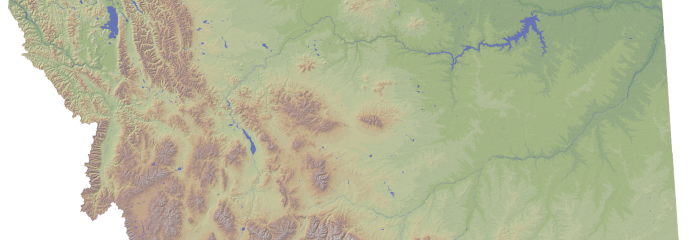Project Overview

The University of Montana and the University of Alaska, Anchorage will conduct scientific research that is responsive to the needs of their natural resource based economies. Specifically, questions from the areas of snow water resources, wildland fire management, and abandoned oil well monitoring will drive the research agenda. The scientific work is united by a common set of techniques for answering questions. Moreover, the common approach is to: 1) Use unmanned flying vehicles called drones to collect pictures and other measurements. While the information acquired by drones is high quality, it is also a large amount of complex data. 2) To aid in the data?s interpretation and address the science questions, we use machine learning methods that train computers to identify patterns in data. Collecting data using drones and the use of machine learning are critical skills for America's future workforce. Our activities are aligned with career training through partnerships with local companies and internships for participating students. With the emphasis on internships, the focus will be retention, rather than recruitment of students. Diversity and inclusion efforts will work in tandem with workforce development to ensure that Indigenous, low income, and rural members of our jurisdictions are integral to the efforts.
It is proposed to use machine learning (ML) to process imagery and other data acquired by autonomous aerial systems (UAS). Processed data will support scientific research in natural resource management by providing a clear means of testing hypotheses. The three areas of natural resource management to apply this approach are: 1) snow water resources, because energy production, agricultural output, and economic growth require improved assessment of the natural capital banked in the mountain snowpack. 2) fire management and science, because an advanced understanding of the physical and ecological processes driving wildfire is required for management practices that better protect forests and the critical infrastructure within them. 3) abandoned oil well monitoring, because detecting and mapping uncapped or improperly sealed oil and gas wells will provide critical data for improved mitigation, site reclamation, and hazard removal. The team bring together the University of Montana and the University of Alaska Anchorage to conduct locally relevant research. The local focus strengthens the relations with nearby commercial interests to identify questions common to academic and commercial endeavors in modern natural resource based economies. Attention is called to UAS and ML as skills vital to both commercial and academic work. To advance the natural resource based advanced manufacturing industries of the jurisdictions, special consideration is given to developing a workforce that spans from two-year college graduates to junior faculty members. This award's plan centers on paid, credit-bearing internships with key partners, drawing commercial interests into the proposed work, and bringing junior faculty to the research. Diversity and inclusion efforts will work in tandem with workforce development to ensure that Indigenous, low income, and rural members of the jurisdictions are an integral part of efforts. With the emphasis on internships, the focus will be retention, rather than recruitment of students. The project engages with disruptive technologies that have long reaching consequences for workers. To address the consequences related to these technologies, the team enlisted the aid of a social scientist to conduct studies evaluating the social and economic impacts.